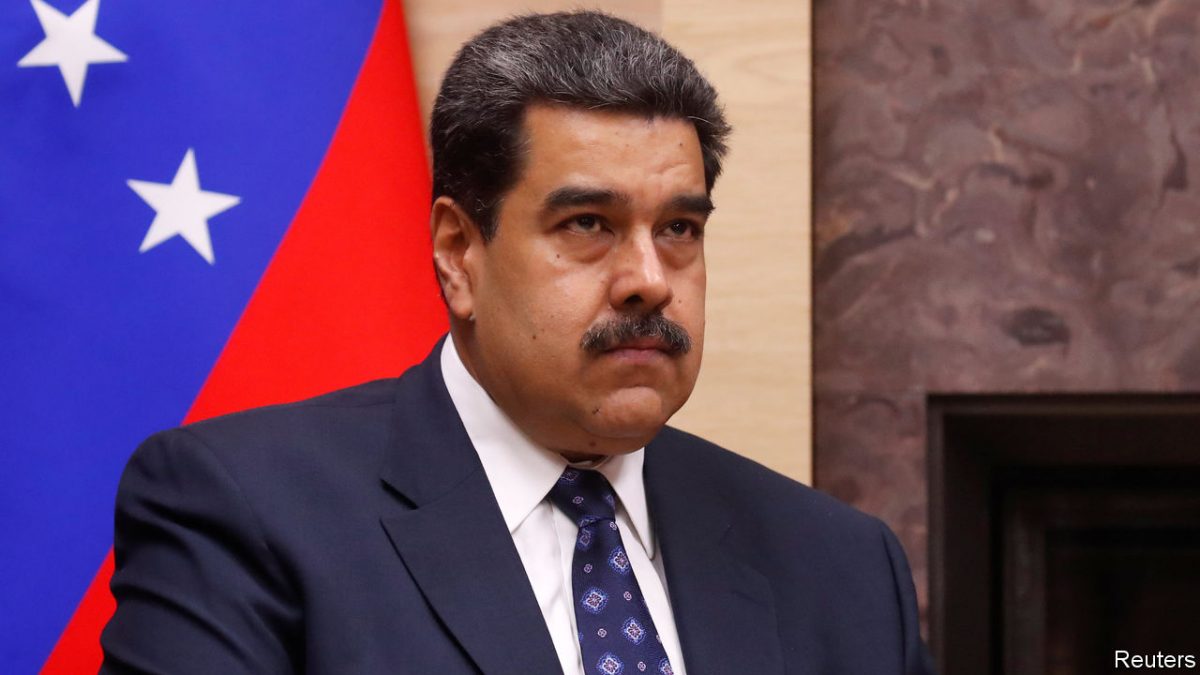The ebb and flow of the political fortunes of Venezuela’s President Nicholas Maduro is, without question, the most compelling contemporary manifestations in the hemisphere of a political leader who has fended off one enormous crisis after another, without – outwardly, at least – appearing unduly ruffled. His travails have included an economic and political battering from Washington that may well have brought the tenures of lesser leaders to an end.
At the political level, the legitimacy of Maduro’s presidency has been challenged by both domestic and external opponents through sustained and vociferous rhetoric emanating from critics both at home in Venezuela and from other countries in the hemisphere who challenge the veracity of the results of the general elections that put him in office. But that is not all. Washington too has long questioned Maduro’s leadership bona fides, backing their displeasure with a crippling regimen of economic sanctions that have targeted the country’s oil and gas industry, mostly its exports, scattering thousands of the country’s economic refugees to the proverbial winds and reducing what had once been regarded as one of the hemisphere’s leading economic powerhouses to a condition manifested mostly in a crippled economy where even petrol became a prized possession. If Venezuela is still light years away from anything even remotely resembling socio-economic recovery, there have been some indications that the squeeze has been eased somewhat. In a world where oil still represents a formidable economic and political tool the loss of political office by Caracas’ one-time tormentor-in-chief, former US President Donald Trump has, over time, helped to push back the sanctions even as the pressures brought to bear on Venezuela’s oil industry began to be eased by some of Maduro’s political allies, notably, in Russia and Iran.
Ironically, Caracas’ enemy-in-chief, Washington, helped too. While the sanctions imposed on Venezuela by the US put a crippling squeeze on both the country’s oil exports and by extension, on the whole of the country’s economy, Caracas and Washington struck a deal under which the US oil company CHEVRON was exempted from the general recall of US companies operating in Venezuela. That decision played a critical role in keeping the country’s oil industry afloat. The reality was, however, that US sanctions had not only put a crippling squeeze on Venezuela’s oil exports, it had, as well, rendered dysfunctional other critical elements of the sector, some of which are central to the overall production process.
The recent revelations of endemic corruption and serious lapses in strategic oversight that led to the removal, back in March, of Tareck El Aissami, the long-time ‘Czar’ of the country’s oil sector, along with a reported half a dozen more ‘high fliers’ in the sector amid a corruption probe focused on state-run company PDVSA and the country’s judiciary. Arguably the most significant feature of Maduro’s presidency, up to this time, has been his success in keeping the country’s ravaged economy afloat even as he has sought to navigate his way through the US’ sanctions while addressing increasing political resentment at home over the country’s steadily collapsing economy. That said, the ‘scars of battle’ remain imprinted of the country, as a whole.
First, Iran, and now Saudi Arabia have reached out to Maduro. In this instance, it is, it seems, a concern by Kuwait that a key member of the Organization of Petroleum Exporting Countries (OPEC) not fall apart under US pressure that has caused that country (Kuwait) to come to Venezuela’s rescue. What the situation also reflects, is the remarkable range of friends which Maduro has accumulated in his time of domestic crisis. Up to earlier this week Caracas would only say that Maduro’s visit to Saudi Arabia is aimed at developing “a work agenda to strengthen political, diplomatic, and energy alliances.”
Immediately prior to his departure for Riyadh, Maduro found himself in Brazil at a meeting of Heads of Government of the Union of South American Nations (USAN), courtesy of an invitation extended by recently elected Brazilian President Luiz Inácio Lula da Silva, even if his presence at the forum may well not have been pleasing to the various pro-Washington Heads of Government who were in Brasilia too. Still it seems that President Maduro may have, hopefully, ridden out the protracted storm that has targeted both his own presidency and certainly, Venezuela’s economy.
What economists say has been almost a decade of economic crisis in Venezuela is now being described in some quarters as “showing a few signs of recovery,” though that assessment is tempered by the view that Venezuela’s poorest communities “are (still) trying to make the most of the new opportunities opening up,” though “many have yet to feel the benefits of the apparent economic rebound.”






